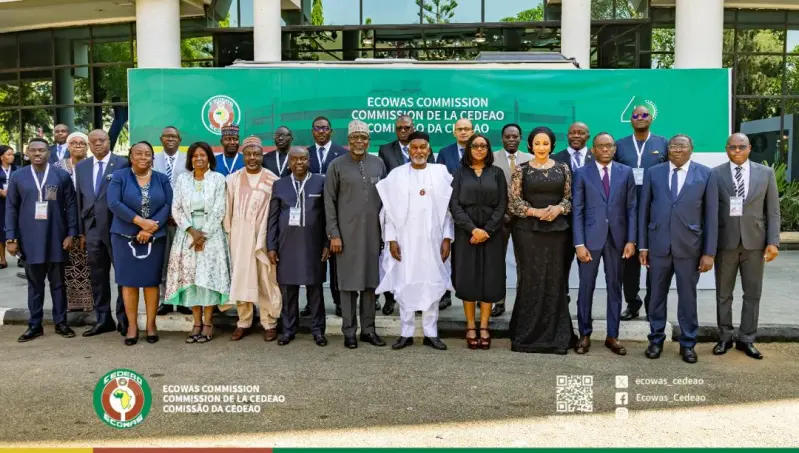
The Economic Community of West African States (ECOWAS) has taken a decisive step toward bolstering regional economic autonomy as ministers from across the bloc convened in Abuja for the 94th Ordinary Session of the Council of Ministers.
The two-day summit, held on 19–20 June, comes as the organization marks its 50th anniversary—a symbolic moment to reflect on its journey and reaffirm its integration ambitions.
The session centered on reviewing the 2025 interim report on the state of the Community, assessing the financial health of the organization, and evaluating the outcomes of the 37th Administrative and Financial Committee meeting.
Discussions spanned across critical sectors such as infrastructure, education, agriculture, institutional reforms, and healthcare—areas pivotal to the region’s sustainable development.
ECOWAS Commission President Dr. Omar Alieu Touray lauded the recent adoption of a regional trade and investment promotion strategy by trade ministers, calling it a “historic breakthrough.” He urged member states to expedite the ratification of key international instruments, including the WTO Fisheries Subsidies Agreement and the African Continental Free Trade Area (AfCFTA), to further liberalize trade and unlock regional economic potential.
In a significant boost to industrial harmonization, ECOWAS also approved 58 new regional standards (ECOSTANDS) for the textile sector.
These standards aim to enhance the competitiveness of West African goods and foster deeper intra-regional trade.
Dr. Touray also addressed regional security concerns, reaffirming ECOWAS’s commitment to engaging with Burkina Faso, Mali, and Niger in their fight against terrorism and violent extremism.
He noted the continuation of “constructive engagements” and confirmed the reopening of dialogue with Guinea concerning its ongoing political transition.
Nigerian Foreign Minister Ambassador Yusuf Maitama Tuggar emphasized the urgent need to end economic dependence on external actors.
“ECOWAS maintains an unwavering stance against neocolonial dependency,” he declared, advocating for stronger regional value chains and the empowerment of local industries.
A major highlight of the session is the West Africa Economic Summit (WAES), set for 20–21 June in Abuja.
Spearheaded by Nigerian President Bola Ahmed Tinubu, the summit brings together public officials, private investors, and emerging entrepreneurs to catalyze regional economic transformation.
A dedicated negotiating room, hosted by the Nigerian Sovereign Wealth Fund, is expected to serve as a launchpad for high-impact investment projects across the subregion.
As ECOWAS enters its sixth decade, this ministerial meeting reflects a growing consensus among member states: achieving true sovereignty in West Africa must begin with robust, home-grown economic foundations.



